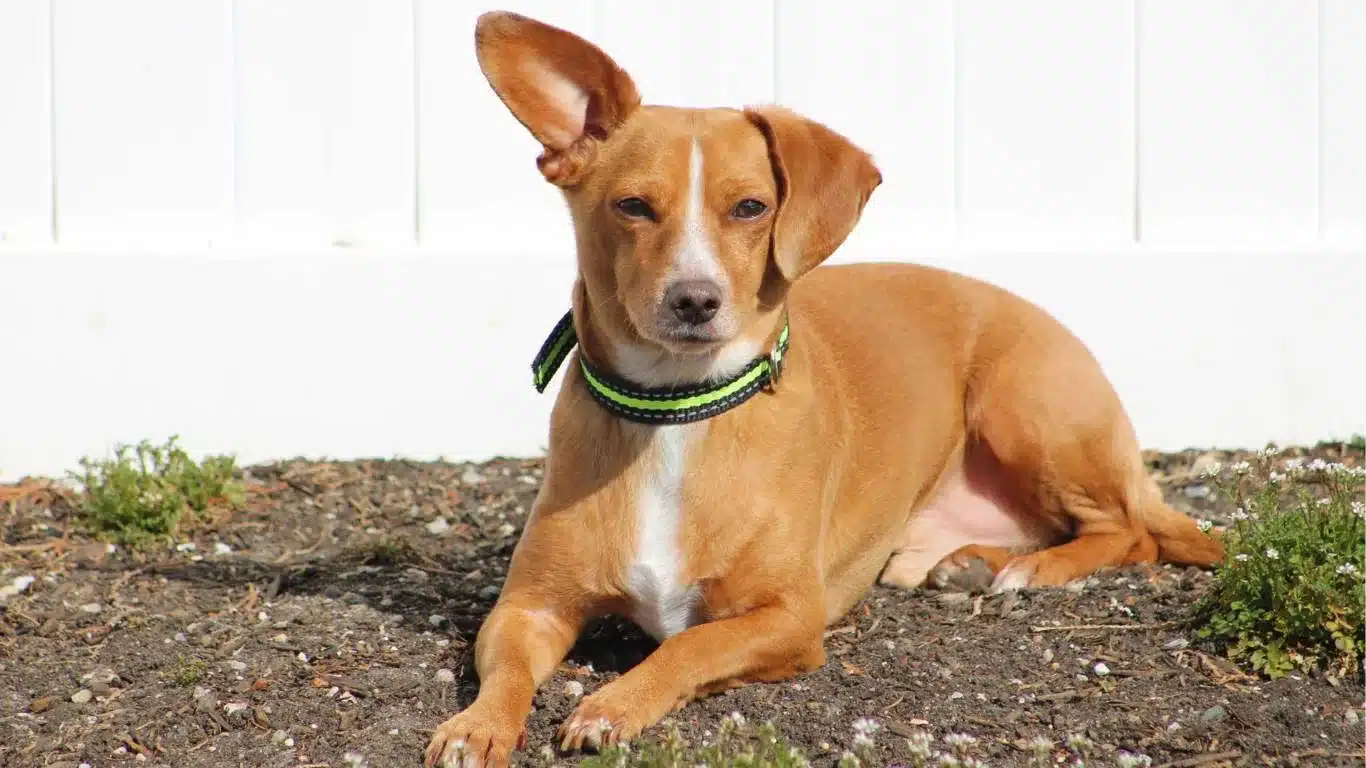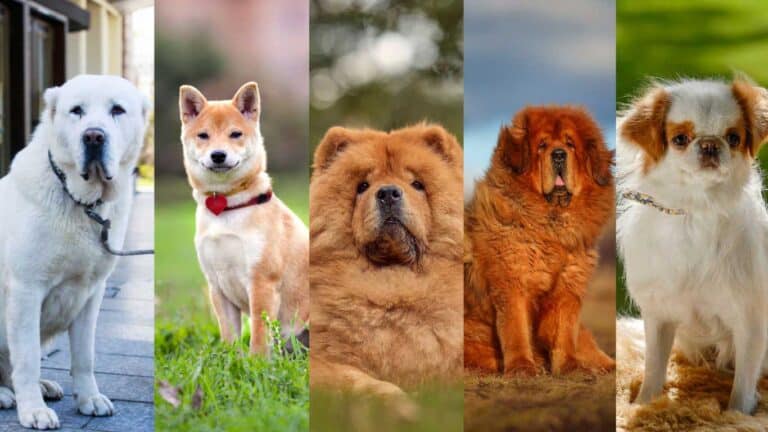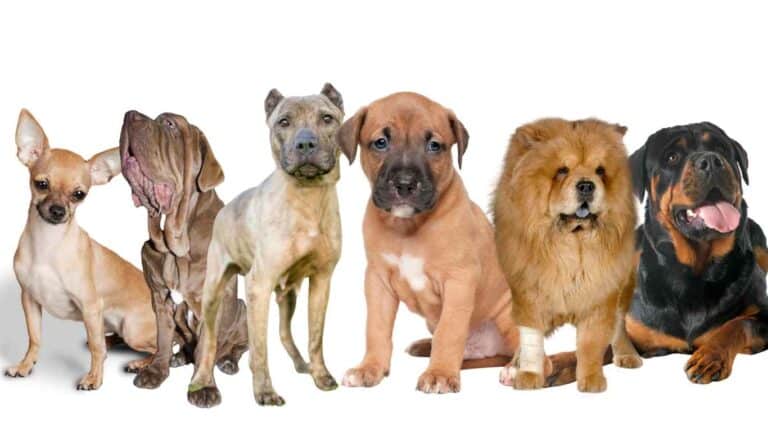If you’re considering adopting a chiweenie puppy, you’re in for a delightful and rewarding experience! Chiweenies, a designer breed resulting from the crossbreeding of Chihuahuas and dachshunds, have become increasingly popular as companions due to their unique characteristics. These small and charismatic dogs are both playful and trainable, making them a perfect addition to your family. When bringing chiweenie puppies into your home, it’s important to create a loving environment that nurtures their energetic and sociable nature.
Chiweenie puppies thrive on positive reinforcement and social interactions, so dedicating time to play and training will contribute to a harmonious relationship between you and your new furry friend. Prepare for the joy and companionship that chiweenie puppies bring, and cherish the special moments as you watch them grow and become integral members of your household.
When it comes to caring for your chiweenie, it’s important to provide them with the love, attention, and proper care they deserve. This comprehensive guide will give you all the tips and information you need to ensure that your new chiweenie puppy receives the best care possible.
Paw-Some Insights:
A Quick Look at the Chiweenie
When it comes to the Chiweenie breed, it’s all about being small and adorable. These charming dogs have captured the hearts of many with their endearing personality and unique looks. Let’s dive into some key details about Chiweenies, including their weight, height, and coat type.
Chiweenies are small dogs, typically weighing between 5 to 12 pounds. Despite their tiny stature, they are full of energy and make great companions for those living in apartments or small homes. Standing between 6 to 10 inches tall, they are compact and easy to handle.
One of the distinguishing features of Chiweenies is their coat. While they may have a variety of coat types, the most common is short and fluffy. This type of coat requires minimal grooming, making it easy to maintain. Additionally, Chiweenies don’t shed much, which is a bonus for those with allergies.
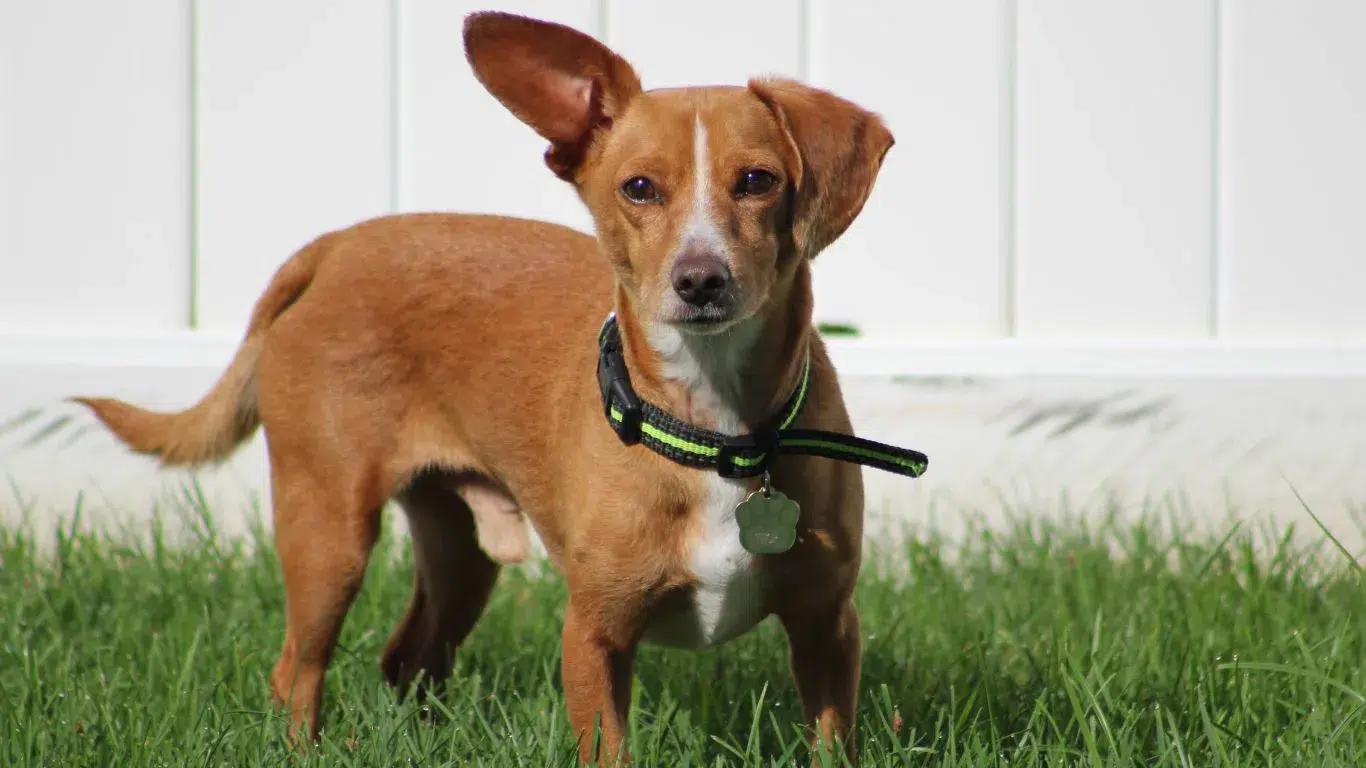
Now, let’s take a closer look at Chiweenie weight, height, and coat type in this handy table:
| Chiweenie | Weight | Height | Coat Type |
|---|---|---|---|
| Minimum | 5 pounds | 6 inches | Short and fluffy |
| Maximum | 12 pounds | 10 inches | Varies, but often short and fluffy |
Fun Fact:
“Despite their small size, Chiweenies have big personalities and are known for their ability to bring joy and laughter to their owners.”
With a medium energy level and a lifespan of around 12 years, Chiweenies are well-suited to both individuals and families. Whether you’re looking for a cuddly companion or a playful friend, a Chiweenie could be the perfect addition to your home.
Now that you have a quick overview of Chiweenie weight, height, and coat type, you can better understand what makes this breed so special. In the next section, we’ll explore the fascinating history of the Chiweenie and how it came to be.
What Is the History of the Chiweenie?
The chiweenie is a captivating designer breed that gained popularity in the 1990s, coinciding with the rise of urban living. While the exact origin of the chiweenie remains uncertain, its unique heritage is a blend of the Chihuahua and the dachshund.
The Chihuahua, a breed with disputed origins traced back to ancient Egypt or China, contributes to the chiweenie’s distinctive traits. Chihuahuas have been cherished companions for centuries, characterized by their small size and spirited personalities.
The dachshund, originating in Germany during the 16th century, brings its own history to the mix. Known for their elongated bodies and muscular build, dachshunds were bred for hunting purposes, using their exceptional scent-tracking abilities to pursue game such as badgers.
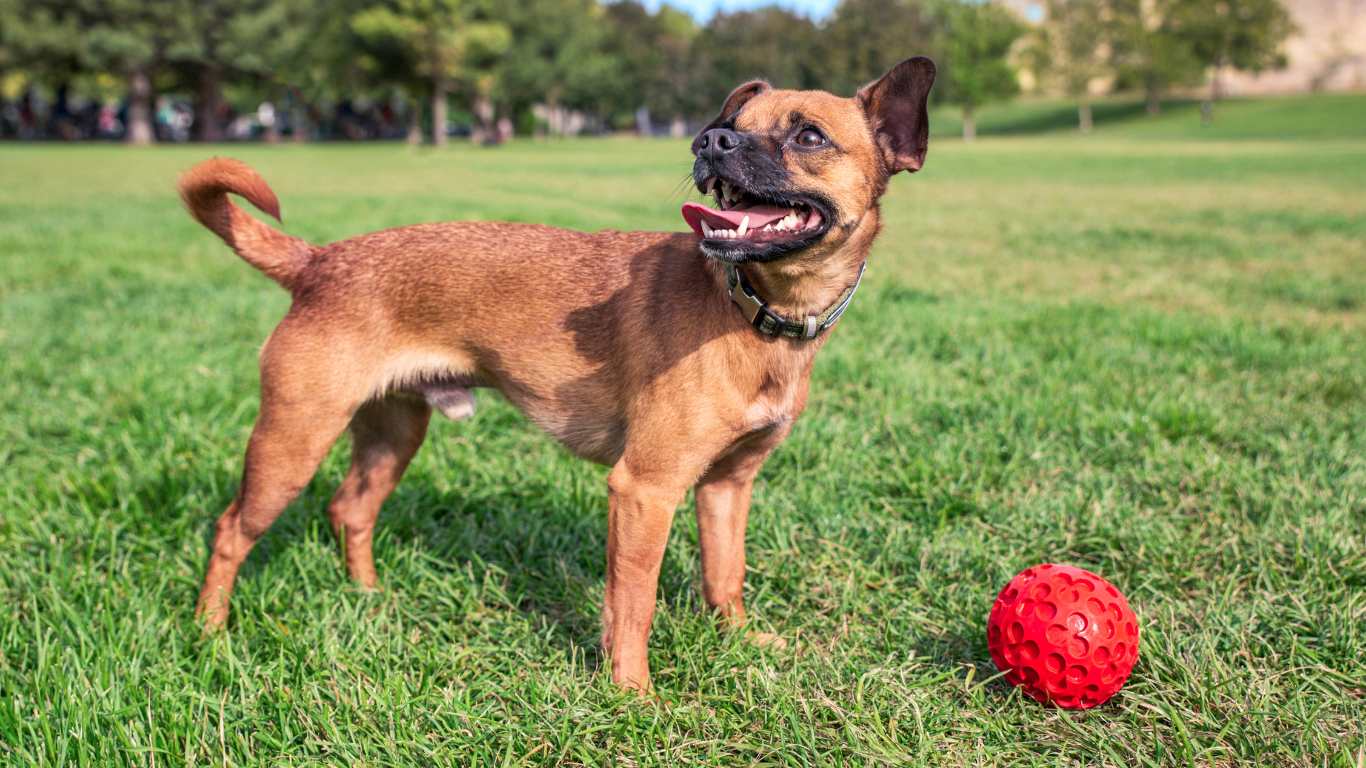
The combination of these two breeds resulted in the creation of the chiweenie, a designer dog that quickly gained popularity amongst pet lovers. With its unique appearance and the involvement of popular celebrities, the chiweenie became sought after as a fashionable companion.
What Do Chiweenies Look Like?
When it comes to appearance, chiweenies have a unique blend of features from their Chihuahua and dachshund parent breeds. With their adorable faces, they have a round head and striking black eyes that tend to stand out. Chiweenies often have floppy ears, although some may inherit straight ears from their dachshund heritage.
One distinguishing characteristic of chiweenies is their elongated bodies, earning them the affectionate nickname “hot dogs.” These small designer dogs come in various sizes, typically weighing between 5 to 12 pounds and standing between 6 to 10 inches tall. Despite their small stature, chiweenies possess a vibrant and playful personality.
Chiweenies showcase a wide range of coat colors, including shades of brown, tan, and often with red tints. Their coats can be short and fluffy, requiring minimal grooming as they don’t shed much. This low-maintenance aspect makes them an ideal choice for individuals or families looking for a charming and compact companion.
| Chiweenie Appearance | |
|---|---|
| Average Weight | 5 to 12 pounds |
| Average Height | 6 to 10 inches |
| Coat Type | Short and fluffy |
| Coat Colors | Brown, tan, with red tints |

What Is a Chiweenie’s Temperament?
Chiweenies have a playful temperament and get along well with other animals. However, they can be aggressive if they feel threatened or don’t receive enough attention. They are affectionate dogs and thrive on human companionship. While they are trainable, they tend to bark a lot and may not be suitable for younger children. Chiweenies are best suited for adults and families with older children.
Are Chiweenies Good With Kids and Other Animals?
While Chiweenies can make wonderful companions, it’s important to consider their compatibility with kids and other animals. Due to their small size, Chiweenies may not be the best fit for young children, as they can be easily injured if not handled with care. Additionally, Chiweenies can be possessive and may exhibit aggression if they feel threatened.
However, with proper training and socialization, Chiweenies can develop good relationships with older children. It is crucial to teach kids the importance of gentle interaction and respect towards the dog’s boundaries. By establishing clear boundaries and providing positive reinforcement, Chiweenies can learn to be more tolerant and well-behaved around children.
When it comes to other animals, Chiweenies have the potential to get along well. However, introductions should be done slowly and carefully to ensure a smooth transition. By allowing them to gradually become familiar with each other’s scents and surroundings, the chances of aggression or anxiety can be minimized. Supervision is essential during initial interactions to ensure the safety and well-being of all animals involved.
“When introducing your Chiweenie to other animals, take things slow and provide positive reinforcement. Creating a harmonious environment requires patience and time.”
By respecting individual boundaries and promoting positive interactions, Chiweenies can form meaningful connections with both kids and other animals. Proper socialization and training play a vital role in nurturing a happy and well-adjusted Chiweenie.

| Pros | Cons |
|---|---|
| Can develop good relationships with older children | They may not be suitable for young children |
| Potential to get along with other animals | Possessiveness and aggression if threatened |
| Positive interactions can be established with proper socialization | Slow and careful introductions are required |
Are Chiweenies Aggressive and Do They Bark a Lot?
When it comes to aggression, Chiweenies, like any other dogs, can exhibit signs of aggression if they feel threatened or neglected. However, it’s important to note that aggression is not a defining characteristic of the breed. With proper love, attention, and training, the chances of aggression in Chiweenies are minimal.
On the other hand, Chiweenies are known for their tendency to bark a lot. They have a high-pitched bark that they use to communicate and express themselves. This barking behavior can be especially prominent when they encounter people or other dogs.
To manage their barking behavior, training plays a crucial role. By providing consistent and positive reinforcement training, you can help your Chiweenie understand when it’s appropriate to bark and when it’s not. Teaching them command words like “Quiet” or “Enough” can also be beneficial in controlling excessive barking.
| Pros | Cons |
|---|---|
| Chiweenies are generally friendly and sociable. | Chiweenies may bark excessively, especially when they feel anxious or threatened. |
| They can get along well with other pets if properly socialized. | Chiweenies can be possessive and exhibit aggression if not trained and socialized properly. |
| Proper training can help minimize their barking tendencies. | Chiweenies may not be suitable for households with young children due to their small size and potential for aggression. |
Are Chiweenies Intelligent and Easy to Train?
When it comes to intelligence, Chiweenies are no slouches. These smart dogs possess both cognitive abilities and emotional intelligence, making them excellent companions and trainable pets.
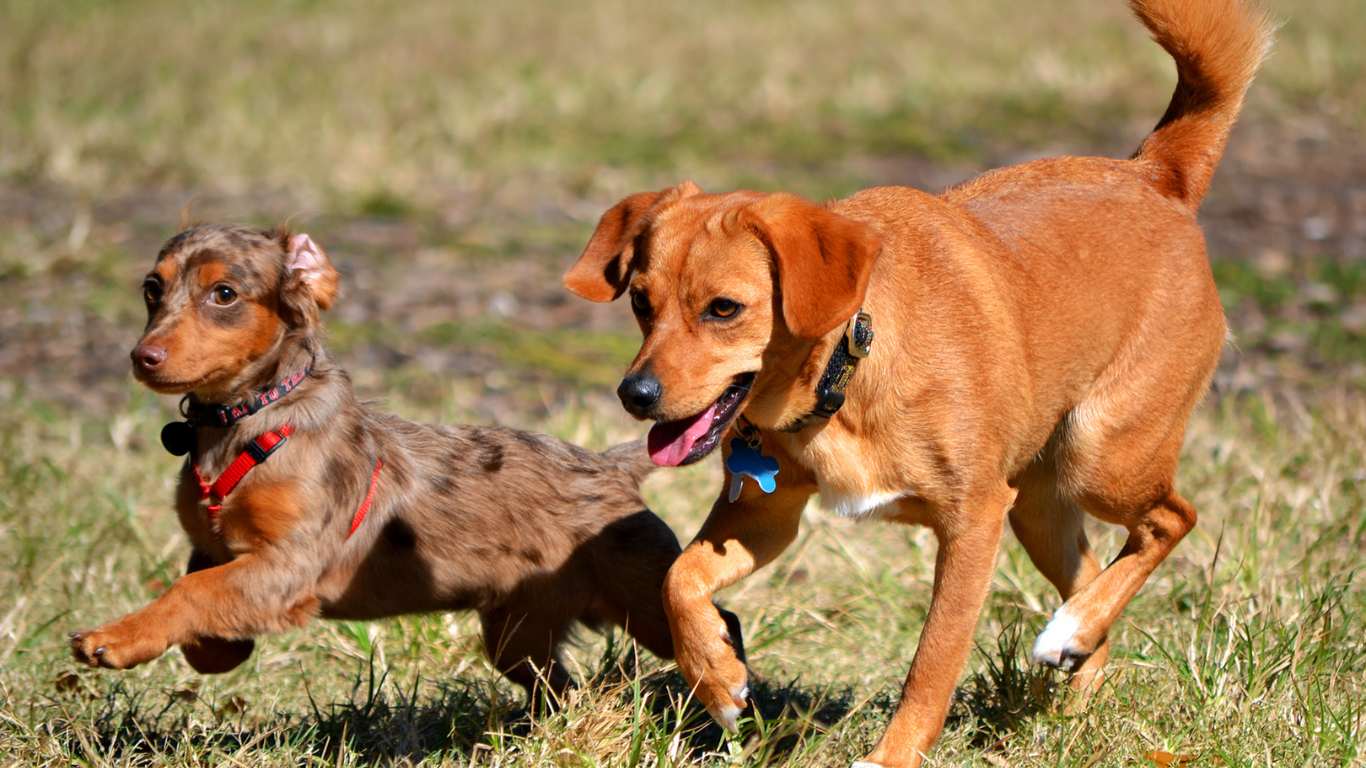
Chiweenies have the capacity to form strong bonds with their owners, which contributes to their overall intelligence. They are highly attuned to human emotions and can sense when their owners are happy, sad, or in need of comfort. This emotional intelligence allows Chiweenies to be sensitive and responsive to their owners’ needs, enhancing their ability to be trained effectively.
Training a Chiweenie can be an enjoyable experience for both you and your furry friend. These charismatic dogs are eager to please and can learn a wide range of tricks and tasks. However, it’s important to note that Chiweenies can also be a bit stubborn at times, which may require some patience and consistency during the training process.
To make training a Chiweenie easier, it’s best to start at a young age. Puppies have a natural inclination to learn, and early training can help establish good habits that will benefit your Chiweenie throughout their life. Use positive reinforcement methods, such as treats, praise, and rewards, to motivate your Chiweenie during training sessions.
“The key to successfully training a Chiweenie lies in consistency, positive reinforcement, and patience. With the right approach, these intelligent dogs can quickly grasp commands and behaviors.”
Benefits of Training a Chiweenie:
- Improved obedience
- Enhanced socialization skills
- Reduced behavioral issues
- Increased mental stimulation
| Training Tips | Description |
|---|---|
| Start early | Begin training your Chiweenie as a puppy to establish good habits at a young age. |
| Use positive reinforcement | Reward your Chiweenie with treats, praise, and affection to encourage desired behaviors. |
| Be consistent | Stick to a consistent training routine and use the same commands to avoid confusion. |
| Keep training sessions short | Chiweenies have a shorter attention span, so keep training sessions brief and engaging. |
| Patience is key | Stay patient and understanding during the training process. Chiweenies may take longer to learn certain commands. |
By investing time and effort in training your Chiweenie, you can unlock their intelligence and ensure they become well-behaved and obedient companions.
Join the Pet Planet Diaries
Sign up for our newsletter to get the latest tips, stories, and exclusive insights into the wonderful world of pets.
Final Remarks
Chiweenies are a charming and adorable small designer breed that are highly sought after as companions. With their unique mix of characteristics from Chihuahuas and dachshunds, they bring joy and happiness to their owners. However, proper care, training, and socialization are crucial to ensure a happy and well-adjusted chiweenie.
If you’re considering adding a chiweenie puppy to your family, it’s important to do thorough research to find a reputable breeder. This will ensure that you are getting a healthy and well-bred puppy. Additionally, be prepared for the responsibilities of pet ownership, including regular veterinary care, proper nutrition, exercise, and ample attention.
When it comes to chiweenie puppy prices, they can vary depending on factors such as the breeder’s reputation, the puppy’s pedigree, and the geographical location. It is recommended to budget accordingly and be cautious of unusually low prices, as this may indicate health or breeding issues.
If you’re ready to welcome a small designer breed into your home, buying chiweenie puppies can be a rewarding experience. These lovable dogs will captivate your heart with their playful nature, intelligence, and affectionate personality. Take the time to find a reputable breeder, and you’ll be rewarded with a loyal and cherished pet.
FAQ
What are some basic tips for caring for a chiweenie puppy?
Some basic tips for caring for a chiweenie puppy include providing a balanced diet, regular exercise, socialization, training, and regular veterinary check-ups.
How much do chiweenie puppies weigh and how tall do they stand?
Chiweenie puppies typically weigh between 5 to 12 pounds and stand between 6 to 10 inches tall.
What is the history of the chiweenie breed?
The exact origin of the chiweenie is uncertain, but it is believed to have become popular in the 1990s as a designer breed. It is a combination of the Chihuahua and dachshund breeds.
What do chiweenies look like?
Chiweenies have the face of a Chihuahua, a round head, black eyes, and floppy ears. Their bodies are long like dachshunds, earning them the nickname “hot dogs.” They come in various sizes and have coats that can range in color from brown to tan.
What is the temperament of a chiweenie?
Chiweenies have a playful temperament and are known to be affectionate and adaptable. However, they can be possessive and may become aggressive if they feel threatened. They generally get along well with other animals and thrive on human companionship.
Are chiweenies good with kids and other animals?
Chiweenies may not be the best with young children, as they are small and can be easily injured. However, with proper training and socialization, they can get along with older children. They can also get along with other animals, but introductions should be done carefully.
Are chiweenies aggressive and do they bark a lot?
Chiweenies can become aggressive if they feel threatened or neglected. They are known for their high-pitched barking and tend to bark a lot, especially when they see people or other dogs. Training can help manage their barking behavior.
Are chiweenies intelligent and easy to train?
Chiweenies are smart dogs with emotional intelligence. They can form strong bonds with their owners and can be trained to perform various tricks and tasks. While they may be stubborn at times, starting training at a young age can help establish good habits.
What should you consider before getting a chiweenie puppy?
Before getting a chiweenie puppy, it is important to do proper research, find a reputable breeder, and be prepared for the responsibilities of pet ownership. Consider the cost of buying a chiweenie puppy, their size and exercise needs, and the long-term commitment required.
With a passion for canine companionship and a wealth of experience spanning 15 years, Dan Schroeder stands as a distinguished authority in the realm of dog health, training, and beyond.
From an early age, Dan found solace and joy in the company of four-legged friends, sparking a lifelong dedication to understanding and enhancing the lives of dogs. His journey into the world of canine expertise began over a decade and a half ago, marked by a relentless pursuit of knowledge in the fields of dog health, behavior, and training.

